Featured Articles
Priceless Bartering Chips For Your Survival: Part 2
When SHTF, money may not be useful anymore. Go over your supplies and choose the items that could be used as bartering chips. Check out our tips.

When SHTF, money may not be useful anymore. Go over your supplies and choose the items that could be good to use as bartering chips. Check out our tips in the list below!
Choosing Your Bartering Chips When SHTF
In a previous article I gave you my list of items that are priceless as bartering chips after a crisis. This week I had so much information that I had to limit this email to only 4 items. Check out this rundown of the first 5 items.
- Cigarettes
- Alcohol
- Antibiotics and medicines
- Sanitation and First aid supplies
- Bullets
If you missed the previous newsletter that contains why these items are important, or if you just want a refresher please click here.
Bartering Chip #1: MREs
MREs are great to have on hand for bartering as well as personal survival. Keep a variety of flavors and different kinds of food, because you might hold something that completes a meal for a hungry person. MREs are quite heavy and are expensive unless you find a good deal on them. They have an increased value in that they don’t need water to be consumed (the meals are not freeze-dried and are literally ready to eat right out of the package.)
They also contain desserts, moist towelettes and plenty of condiments that you can save for later if you don’t need them with the meal. These meals don’t store anywhere near as long as freeze-dried or dehydrated meals, coming in at an average maximum of 3 years. It is the instant gratification of having a warm meal (with the flameless heater inside) as opposed to another hungry night.
In survival situations, MREs come in handy as a single meal. After a crisis when your caloric intake requirements go back to “normal,” the average caloric content of an MRE comes in at 1250 calories. That’s almost an entire day’s calories in one meal.
You can get cases of MREs for between $50 and $100 online. This puts them at the top end of my budget. Therefore, they’re one of the last items that I look into storing. With that said, they could still have worth to stock up on. Make sure to check the dates and to store them in the coolest part of your house.
Checking the dates can be a little difficult. Sometimes you’ll have a nice, easy-to-read date packed stamp that says something like “03/09/01” which is read simply as March 9, 2001. However, some cases use a different form such as “1068”. In this case, the first number “1” stands for the year (2001) and the next three numbers indicate which day of the year (365 days in a year) it was packed. So “068” would be day 68 of the year 2001…or March 9, 2001.
The guidelines on packaging for MRE’s is strict, and they should maintain a minimum shelf life of three and a half years at 27 °C (81 °F), nine months at 38 °C (100 °F), and short durations from −51 °C (−60 °F) to 49 °C (120 °F). Basically the cooler you keep them, the longer they last.
Bartering Chip #2: Coins

I believe that in a long term crisis, skills and bartering will replace coinage and currency. In the short run however, people are used to using our current coinage and are trained to believe that these small metal trinkets have value.
It is for this reason that it wouldn’t hurt to have a stash of silver coins on hand to use in the initial phase of restructuring after a crisis. Keep in mind this doesn’t necessarily mean only silver dollars with a full ounce of silver. Even older, less expensive coins with a high silver component have value (the 1964 Kennedy half-dollar, for example.)
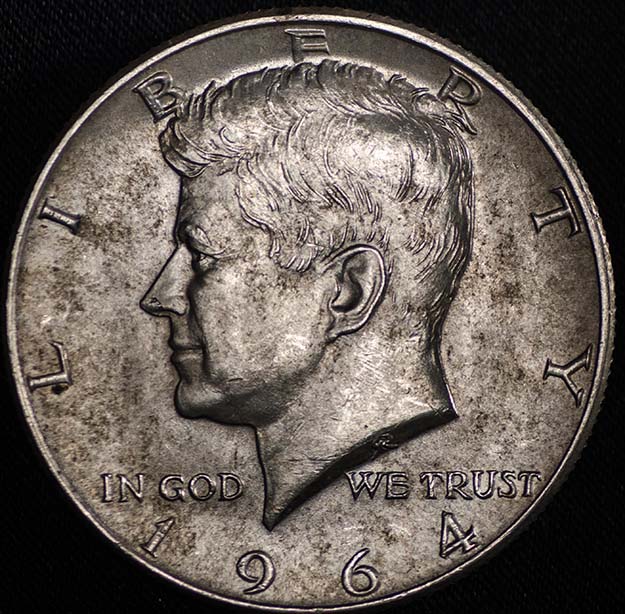
Pre-1965 circulating dimes, quarters, half dollars and dollars were all struck by the U.S. Mint from a silver composition for many years. Below is a short list of coins that contain enough silver to be of value:
- 1916-1945 Mercury Dimes
- 1945-1964 Roosevelt Dimes
- 1932-1964 Washington Quarters
- 1916-1947 Walking Liberty Half Dollars
- 1948-1963 Franklin Half Dollars
- 1964 Kennedy Half Dollars
- 1878-1921 Morgan Dollars
- 1921-1935 Peach Dollars
I want to make sure that my opinion on this is abundantly clear. This coinage will be good for the first phase of restructuring after a long-term disaster. These coins should not be actively sought after by going to trade shows or pawn shops. If you get a good deal on them and have the expendable cash or just happen to find them, then, by all means, get them. Only do so after your other basic needs are met.
Bartering Chip #3: Laundry Detergent
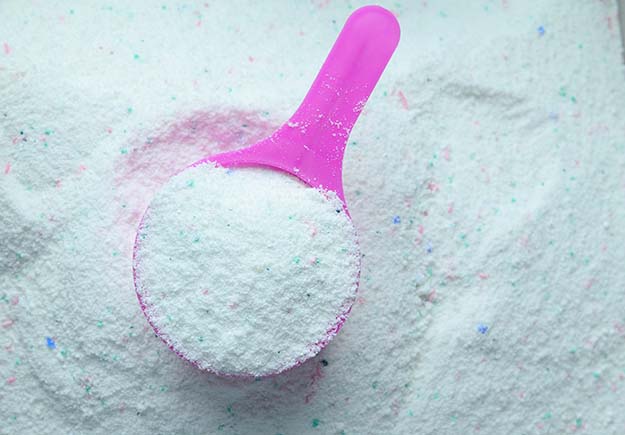
You wouldn’t normally think of laundry detergent as a bartering staple, but even after the SHTF people want to have clean clothes. Sanitation is a necessary function of survival. If you wear the same clothes day in and day out, they will become contaminated with bacteria and dirt. If you are in a situation where your clothes start to chafe you, having raw skin mixed with soiled clothes can lead to a nasty fungus or skin infection.
If you don’t think that people are willing to barter in detergent, you might want to think again. In March of 2012 a news story broke about a rash of theft involving Tide laundry detergent. Detergent theft became so rampant that authorities from New York to Oregon began keeping tabs on the soap spree. It even led some cities to create special task forces to stop it.
Retailers like CVS and Walgreens were forced to take security measures, some going as far as actually keeping the soap under lock and key. Apparently, Tide detergent has a special place on the black market, and at the time was referred to as “liquid gold.” One Tide bandit in West St. Paul, Minn., made off with over $25,000 in the product in just 15 months before being arrested.
The laundry detergent is stolen because of its implied value and easy resale. Officers have even witnessed Tide as a form of currency for drug deals. The intrinsic value of laundry detergent will only go up when it becomes a necessity and is not readily available on shelves.
Bartering Chip #4: Water Bottles
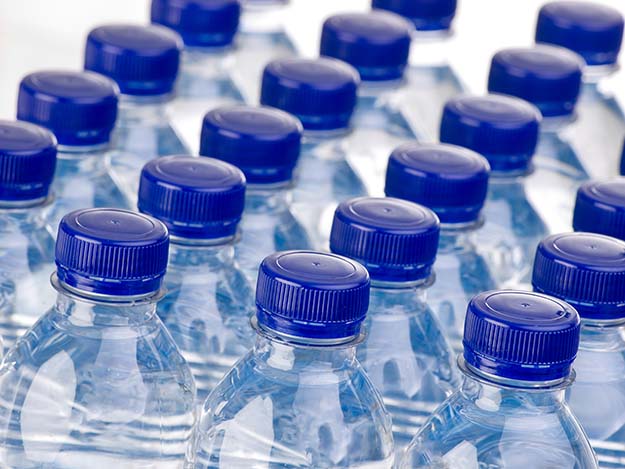
To someone in bad need of water, a water bottle could be worth its weight in gold. Remember the survival rule of threes: you can live three minutes without air, three days without water, and three weeks without food. Odds are unless something destroyed all of the buildings in a disaster area or they are made otherwise uninhabitable, you’ll most likely find shelter.
This leaves part two: water.
Most people will intellectually scramble to get food. Unfortunately for them, food is the last thing on their minds.
The majority of the time when you feel hungry, it is actually your body telling you it is thirsty and needs more water. While you can get a fair amount of water from some food staples, digestion requires water and you will end up with a negative net water intake.
If you have a stockpile of fresh, ready-to-drink water, you essentially have cash stockpile. If you have the ability to create and store your own water, you have your own version of a money tree. Discover this “weird” blue tube that could save your life.
Clean water is NOT a luxury, it is a necessity. As such, it is an invaluable resource. You do not necessarily need to have your own well or access to a running water source to generate water. Simple skills and equipment such as a solar still and condensation collection have the ability to keep you well hydrated.
Click Part 1 and Part 3 to read the rest of the series.

For awesome survival gear you can’t make at home, check out the Survival Life Store!
-

 Do It Yourself7 months ago
Do It Yourself7 months agoParacord Projects | 36 Cool Paracord Ideas For Your Paracord Survival Projects
-

 Do It Yourself9 months ago
Do It Yourself9 months agoHow To Make Paracord Survival Bracelets | DIY Survival Prepping
-

 Do It Yourself9 months ago
Do It Yourself9 months ago21 Home Remedies For Toothache Pain Relief
-

 Do It Yourself10 months ago
Do It Yourself10 months agoSurvival DIY: How To Melt Aluminum Cans For Casting
-

 Exports8 months ago
Exports8 months agoAre Switchblades Legal? Knife Laws By State

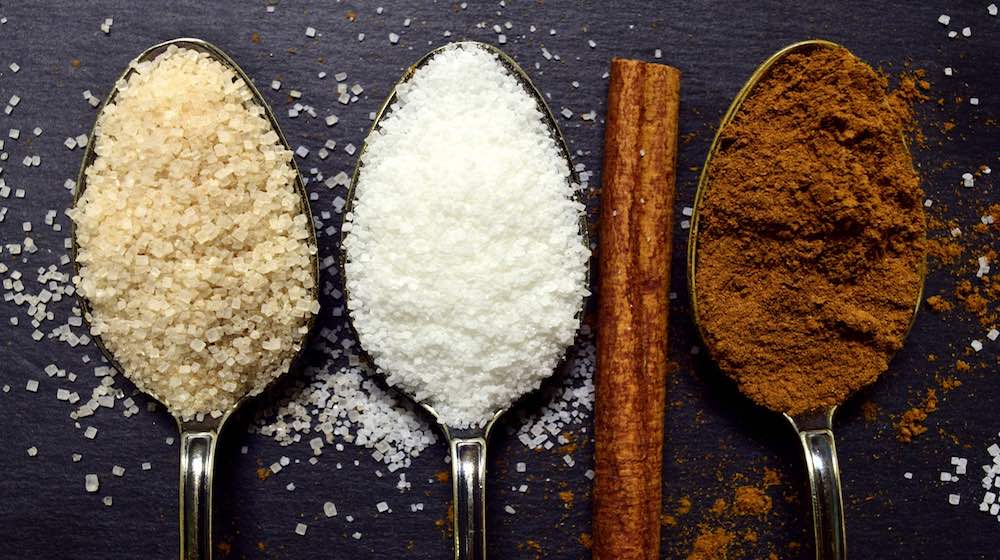

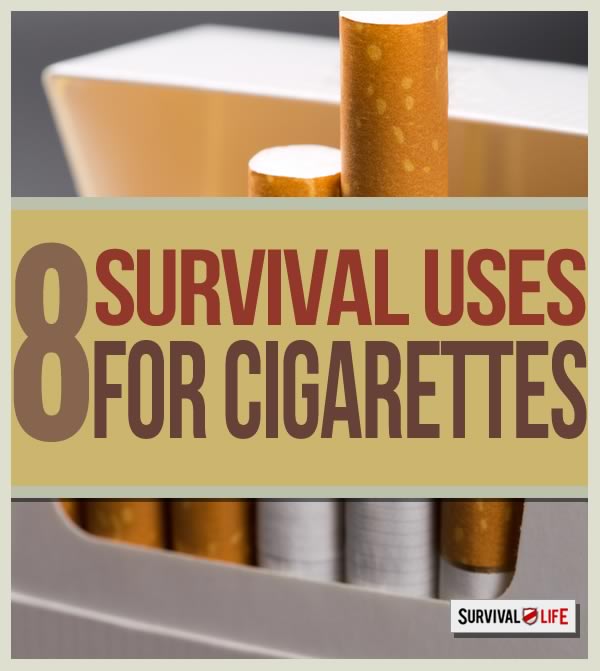

Michael
October 31, 2012 at 9:51 PM
Can you send me Issues #1-5 via email?
I enrolled late and I will forward them to several friends.
Joe
November 1, 2012 at 1:03 PM
Hi Michael, If you navigate over to my archives section you should be able to find the previous emails, Unfortunately I do not have a way to forward the previous newsletter issues at this time
Thanks for tuning in!
Joe
janey
January 4, 2013 at 9:43 AM
Joe, I guess I am old and I remember Y2K. I still have the items I purchased to prepare for that melt down. Water–I had an above ground swimming pool with my gutter down spouts able to replentish the water. Now, with the kids all gone, the pool is gone, I have the downspouts going into rain barrels. 8 in all, with a berkle water filter.
Carol
January 7, 2013 at 3:42 PM
I don’t have a gun. What do you recommend? What shall I do?
left coast chuck
October 10, 2016 at 2:08 PM
If you have no experience with firearms, I would recommend a couple of things: First, get a .22 caliber rifle. Generally speaking it is easier to hit the target with a rifle than a handgun. Second, make sure before you plunk your money down the clerk instructs you fully in how to operate the rifle, including taking it apart to clean it. Make sure the owner’s manual is in the package you take home. If the clerk talks down to you or doesn’t seem inclined to want to spend the time doing that, walk away, go to another store.
Next, find a certified instructor and have him give you lessons in how to shoot and care for your gun.
What .22 rifle? I am in no way connected with Ruger, don’t even own stock in their company, although I wish I had bought gun company stock before Obama was elected. I would recommend a Ruger 10/22 rifle. It is a modern semi-automatic rifle. There are myriad of after-market parts available for it and it is a very very popular rifle. You won’t have trouble finding parts for it even after the end of the world.
Next I would start going to gun ranges where they have firearms for rent and start renting a variety of handguns and rifles if they have them. Make sure the clerk fully instructs you in the operation of each firearm you rent. See what you like. Ask the clerk what are the strong points and weak points of the firearm you have rented,. Ask him or her what they would buy if they were in the market for a new firearm and why that particular one. After some research you will be able to buy the firearm that meets your needs and works for you. Avoid anyone who (perhaps even me) who recommends only one gun as the sole gun necessary for your needs.
What do I know? Well, I have been a gun owner and shooter since 1953. I served four years in the U.S. Marine Corps and four years active reserve in the USMCR.
I have been a certified pistol and rifle instructor since sometime in the 1990s and have taught many women how to shoot. Unless my student already has a firearm they want to start with, I always start a new student with one of my .22 firearms that I know is accurate. That way I can tell that it is the student and not the firearm that is the source of any problem and we can work on correcting the problem rather than trying to assess whether it is the firearm or the student that is the problem.
Once you have a centerfire firearm, I would spend fifteen minutes each day dry firing the firearm. Ask your instructor what “dry firing” is and safety precautions to take to avoid a negligent discharge. It will do more to improve your shooting that all the banging away you do at the range and in a shorter time and in today’s high cost ammunition world dry firing is the most economical way to improve your skills. Ask your instructor why you should only dry fire with a centerfire firearm as opposed to a rimfire firearm. That is another long topic.
The most important point of this long post is to get instruction from a certified instructor about your how to effectively utilize your firearm.
Magoo
October 10, 2016 at 9:46 PM
Either buy one and learn to use it, or get married to someone who does have guns! 😉
Linda H
March 11, 2019 at 2:09 PM
Wow, that was non-useful and rude. The answer to every woman’s dilemmas is NOT, I repeat NOT to get married! The reply by Left Coast Chuck was useful, respectful, and accurate.
Dee
October 10, 2016 at 9:29 AM
My question here is; what is the shelf life of cigarettes, antibiotics and medicines? Also, does water have a shelf life or is it indefinite, depending on what it’s stored in?
left coast chuck
October 10, 2016 at 11:49 AM
Cigarettes get “stale” after a while but will still burn and will still furnish nicotine. In the mid to late ’50s we were smoking Lucky Strike Green cigarettes in C-rations that had been packed in the late ’40s, so there is a partial answer. If you are a smoker and need a smoke, it won’t matter that the cigarette is stale. Water is still water. If you have a question about its purity, boil it. Boiling is the answer to most problems with water. I don’t bother to rotate my water. I plan on boiling it before I drink it or use it for cooking or washing my face. Other parts of the body, not so much. In an EOTWAWKI, leached chemicals from the container into your water will be the least of your problems. If leaching from plastic bottles really concerns you, buy gallon bottles of cheap wine, empty the wine if you don’t drink and store the water in the gallon bottles. Wrap the bottles with cork shelf liner to minimize the possibility of breakage. I found it is cheaper to buy a gallon bottle of wine than it is to buy an empty gallon glass jar. How the economics of that works is beyond me. Shop around for the cheapest wine you can find. Otherwise look for cheap screw top wine in 1/5 gallon size. You will have to store 5 to make a gallon, but they may be a lot easier to find. In my town, a food chain called Winco has the cheapest gallon wine. It’s $7 a gallon. An empty, new, 1-gallon jug costs $12.. Pour the wine out. Just saved myself $5. I store the jugs in cardboard boxes to keep them from light which is the biggest enemy of stored water. I buy distilled water for storage. We have a water store that sells distilled water for 48¢ a gallon. I would not store the water our municipality provides without boiling it vigorously first. But why bother when I can buy distilled at 48¢ a gallon? Not worth the bother. Don’t forget, you always have whatever your hot water heater holds stored. Don’t be misled into buying one of those on-demand hot water heaters that are so popular now. When you throw away your old water heater you just threw away anywhere from a 30 to a 50 gallon storage tank. I might add that a stack of cardboard boxes doesn’t scream “Prepper” as much as a bunch of water bottles or a big blue water tank.I reinforce the boxes so that they can stand the weight of jugs of water stacked on them. That’s a whole ‘nuther post.
Steve
October 10, 2016 at 3:42 PM
Do you have a vacuum sealer, like for freezer meats ?? Use it, they will keep for years
Andy Landis
October 10, 2016 at 4:13 PM
I have read that it is NOT necessary to bring “contaminated” water (as found in nature) to a complete boil of approximately 212 degrees. It stated that it was just a waste of time, fuel, and energy. But rather, around 160 degrees, or when the first small bubble starts to form on the bottom of your pot/pan/can forms, that any pathogens in the water would be rendered harmless at that point. What are your thoughts?
left coast chuck
October 10, 2016 at 7:04 PM
Andy: You are correct. You have read that. It is called pasteurization. It will kill bacteria. However, there seems to be some question about how valid that method is against virus and some other pathogens that spend part of their life in cyst form. I wouldn’t waste time boiling water for ten minutes as some “experts” recommend, but would bring it to a roiling boil before taking it off the heat source. There may also be organ-phosphates that you want to boil off from the water too before consuming it. In an end of the world situation you will have no way of knowing what has been dumped into the water you are collecting. Industrial waste can be just as deadly as raw sewage.
left coast chuck
October 10, 2016 at 12:08 PM
Now on to antibiotics and medicines. Pill form of medicine lasts the longest assuming it is kept dry and not subject to extreme heat. How long is anybody’s guess. In most cases it doesn’t “get bad” it just loses its strength and hence its effectiveness. Won’t make you sick, just won’t help. Liquid antibiotics and medicines have a shorter shelf life. Again, how long? That is a variable no one can answer. It depends on how they are stored and what they are. Some do get “bad” and should not be used. I would consult various authorities to get more definitive answers. Remember, no one knows. A pharmacist or someone with an advanced degree in organic chemistry is in a better position to render an opinion than someone like me or your ordinary every day physician. There are websites written by doctors who are interested in prepping. Off the top of my head I can’t name them, but if you search the web for prepping and medicine, you should come across them. Carefully review the credentials of the person offering the advice. Some self-styled “experts” are far from it. I have read a very popular book by a “recognized authority on prepping” and in my opinion, a significant portion of his advice is poppycock. Read with discernment. Ask yourself if the advice flies in the face of your own experience. Think about the advice. One “expert” rejected bicycles as a means of travel in an end of the world situation. His advice was that they are not capable of carrying a cargo load. Evidently he never heard of the Ho Chi Mihn trail where the NVA transported tons of material via bicycle. He has never seen transcontinental bicyclists hauling their tents, pots and pans, food and clothing across the country at speeds much faster than walking and loads a lot heavier than one can carry on one’s back. Another recommends using a shopping cart as a bug out vehicle to haul your “stuff” and insists that you should be able to cover 150 miles in 3 days. Think about that. In order to hike 50 miles in one day you have to walk 10 hours at 5 mph. Try that without a load.That’s not advice, it is stupidity and that is from an “expert” who makes his living advising people how to prepare for dire situations and is a published author on the subject. So think about the advice carefully. Review more than one opinion. Then, having reviewed several opinions you will be in a much better position to evaluate and form YOUR own conclusion regarding the answers to your questions.
Doug
October 10, 2016 at 8:09 PM
Pills can be vacuum sealed and then put into cold storage for 10 year’s without losing their effectiveness. However make sure anything that you vacuum seal is double sealed. My vacuum sealer does not seal the heavy-duty bags very well so I do a double seal then check the bags daily for a month to make sure they are sealed properly.
left coast chuck
October 11, 2016 at 11:48 PM
This is what I mean by unvalidated opinion. The questions to ask yourself are: What are Doug’s qualifications to render an opinion on this subject? Does he mean all drugs in pill form? Does that include antibiotics? Patent medicines? Cold storage at what temperature? O degrees F? Minus 20 degrees F? Is colder better? How much colder? Does he mean keep the pills in the original container or are they loose in the vacuum bag? Why ten years? Why not twelve or fifteen or eight? Why such a nice round number? Who did the testing to determine that all pills stored in “cold storage” maintained their effectiveness for ten years? There are a myriad of different medications in pill form did the experiments, if any, that we are not told about include every pill-form medicine in the pharmacopeia?
So, Dee, do your research in areas of your concern and look at the information with discernment and ask yourself questions such as I have outlined above.
Magoo
October 10, 2016 at 9:49 PM
If the lights are still on, keeping things like cigarettes in the freezer will help keep them fresh a little longer.
V.W.
October 10, 2016 at 7:18 PM
In our area the theft of laundry detergent is because the thugs use the detergent as an ingredient In the manufacture of drugs, not because they want to sell the detergent.
Pingback: Priceless Bartering Chips: Part 1 | Survival Life
Pingback: How To Barter With Desperate And Dangerous People | Survival Life